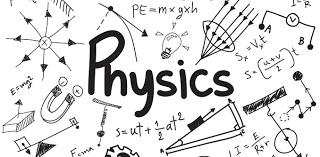Teacher | Posted on | Education
Latest CBSE Chemistry Chapters for Class 11th & 12th | 2024
Student | Posted on
The study in the field of science is the door to magical things coming forward in your life. The given below list are some of the chapters which are included in the CBSE patten in 2021.

The latest chapters in physics, organic and inorganic chemistry for class 11 and 12 cbse are given below:
Physics: Chapter-5 (Maxwell's Equations), Chapter-7 (Voltage Law), Chapter-8 (Ampere's Circuit),Chapter-19 (Mass Properties)
Organic Chemistry: Chapter-8 and 8.01(Molecular Structure and Dynamics)
Inorganic Chemistry: Pt 2 Part A(Foundations of Inorganic Chemistry), Pt 2 Part B(Chemical Reactions).

Chapter-5(Maxwell's Equations): The derivation of Maxwell's equations is given in class 11 cbse, focus is made on displacement current, displacement potential(vacuum), and potential due to an arbitrary distribution of charge. Further, the derivation of Euler for electrostatics is included in the book.
Chapter-7 (Voltage Law): The book contains results of joint measurement of voltage and resistance. The derivation for voltage current relation is also given using the v-j law. The v-j law is also used to find the internal resistance of a resistive element.
Chapter 8 (Ampere's Circuit): The book states that the current due to non uniform magnetic field is zero.It also states that emf of a loop with uniform magnetic field is zero. The ampere's circuital law for closed loop is derived through cross product of B and I, where B is given by curl A.Further,the result of equivalence of current due to varying potential and varying magnetic flux through a loop are stated in the book.The derivation for current due to varying magnetic fields through a closed loop is also given.
Chapter-19(Mass Properties): In the book the effect of temperature on mass is stated.The mass of a solid is assumed to be constant and its units are given as units of kilograms.The density of a binary, solid, liquid or gaseous compound is also stated in this section.Further,the state specific heat capacity at constant pressure and temperature is given in the book.
0
0 Comment
Student | Posted on
Due to this pandemic situation, the officials of CBSE have reduced the 2020-21 class 11 syllabus up to 30%. Only some portions of the chemistry syllabus have been excluded from the Chemistry syllabus. For classes 11 and 12 there are a total of 13 chapters including organic, physical and inorganic.

For class 11,
Physical portions include:
- Some Basic Concepts of Chemistry
- State of Matter
- Structure of Atom
- Chemical bonding and molecular structure
- Chemical Thermodynamics
- Equilibrium
Inorganic portions include:
- Hydrogen
- S-Block elements
- P-Block Elements
- Redox Reactions
Organic portions include:
- Organic Chem Basics Some basic Principles and Techniques
- Hydrocarbons
- Environmental Chemistry
For class 12,
Physical portions include:
- Solid State. Some excluded topics are Electrical & magnetic properties, band theory of metals, conductors, semiconductors and insulators and p & n-type semiconductors)
- Solutions (Excluded topics- Abnormal molecuCan'tass, Van't Hoff Factor)
- Electrochemistry (Excluded topics- Lead Accumulator, fuel cells, corrosion, dry cell-electrolytic cells and galvanic cells)
- Chemical Kinetics (Concept of collision theory, activation energy, Arrhenius equation)
- Surface Chemistry (Excluded topics- types of emulsions, catalysis, enzyme catalysis)
Inorganic portions include:
- p-Block elements (Excluded topics- preparation & properties of Phosphine, Sulfuric Acid, oxides of Nitrogen, phosphorus: allotropic forms, compounds; Preparation and properties of Halides and Oxoacids)
- d & f-Block elements (excluded topics: Chemical reactivity of lanthanides, Actinides- E.C., oxidation state, comparison with lanthanide; Preparation and properties of KMnO4 and K2Cr2O7)
- Coordination Compounds (Excluded topics: Structure and stereoisomerism)
Organic portions include:
- Haloalkanes and Haloarenes
- Alcohols, Phenols and Ethers
- Aldehydes, Ketones and Carboxylic Acids
- Amines
- Biomolecules
0
0 Comment
Entrepreneur | Posted on
I would highly recommend you to go and check the official website of CBSE yourself to get the most updated answer. But here are all the chapters of Chemistry from the latest CBSE curriculum of Class 11 and 12:
Class 11—
Organic:
1. General Organic Chemistry
2. Hydrocarbons
Inorganic:
1. Classification of Element and Periodicity
2. Hydrogen
3. s- block Elements
4. p- block Elements
5. Environmental Chemistry
Physical:
1. Some Basic Concept of Chemistry
2. State of Matter
3. Structure of Atom
4. Chemical Bonding and Molecular Structure
5. Chemical Thermodynamics
6. Equilibrium
7. Redox Reaction
Class 12—
Organic:
1. Organic Compounds Containing Halogen
2. Alcohol, Phenol & Ether
3. Aldehydes, Ketones and Carboxylic Acid
4. Organic Compound Containing Nitrogen (Amines)
5. Polymers
6. Biolmolecules
7. Chemistry in Everyday Life
Inorganic:
1. p- block Element
2. d- and f- block Elements (Transitions Elements)
3. General Principle and Process of Isolation of Elements
4. Co-ordination Compound
Physical:
1. Solid State
2. Solutions
3. Electrochemistry
4. Chemical Kinetics
5. Surface Chemistry

0
0 Comment
